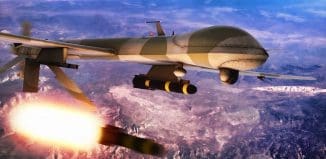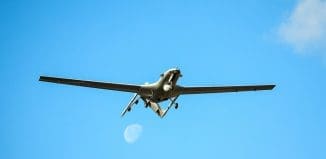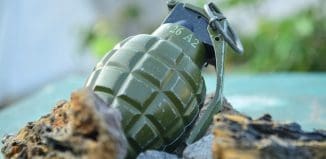Turkey is not protected against chemical weapons
This post is also available in:  עברית (Hebrew)
עברית (Hebrew)
 The situation in Syria has created a great concern in Turkey that is totally exposed to chemical and biological threats.
The situation in Syria has created a great concern in Turkey that is totally exposed to chemical and biological threats.
Turkey borders three notoriously volatile countries, but its defenses against a potential chemical, biological, radiological and nuclear (CBRN) attack have been largely neglected, with the exception of two programs, according to industry sources.
The US and NATO have said they would militarily protect Turkey if it came under Syrian fire. Turkey is the only NATO ally that shares a border with Syria. Ankara also has tense relations with its other Muslim neighbors, Iraq and Iran, with the latter believed to be pursuing a nuclear weapons program.
According to Defense News a Turkish procurement official admitted there could be a need to launch further CBRN programs. “The government may decide to acquire more CBRN equipment, depending on how urgent it views the threat,” he said. “Usually, such programs take time before deliveries [are] completed and we may need to rush. We are also thinking of ways to give pace to the current programs.”
Under a 2008 contract, local enterprise group CAN is manufacturing CBRN protective clothing for all four military services. The US $60 million contract involves the delivery of 162,000 sets of CBRN protective clothing, including suits, boot covers and gloves. In February, CAN delivered the first batch of 2,000 sets. It plans final deliveries by 2017. CAN’s products are 80 percent locally made. “Turkey may have to seek an alternative, stop-gap solution when you consider that a 2008 contract has so far produced slightly over 1 percent of all planned deliveries,” said one industry source.
iHLS – Israel Homeland Security
In a separate, 2010 contract, Turkey will acquire a military laboratory that will detect, analyze and identify CBRN material coming from the enemy. That contract went to Indra Sistemas and now is going through acceptance and examination tests.
According to Serdar Erdurmaz, head of the Mass Destruction Weapons Department at the Turkish Center for International Relations and Strategic Analysis, a think tank, Turkey would suffer casualties in a chemical attack due to the insufficient number of chemical gas detectors along its borders.
“The Turkish Army has detectors, but those are meant for use in combat zones for military units. Because chemical gases are invisible and odorless, premonitory chemical gas detectors, which I doubt Turkey has enough of, should be deployed all along the border,” he said.
Analysts say all Turkey has are mostly expired gas masks supplied several years ago by the United States, and even if Turkey acquired new masks, these can protect only some Turkish military units — not civilians — near the Syrian border. They fear any chemical attack from Syria would result in heavy losses.
Turkish Foreign Minister Ahmet Davutoglu said the necessary measures have been taken against a possible chemical attack from Syria. “All of our related units have taken all kinds of security measures over not just [a possible chemical attack] but also over all the possible threats that could come from Syria and will continue to take such measures,” he said.






























